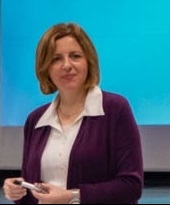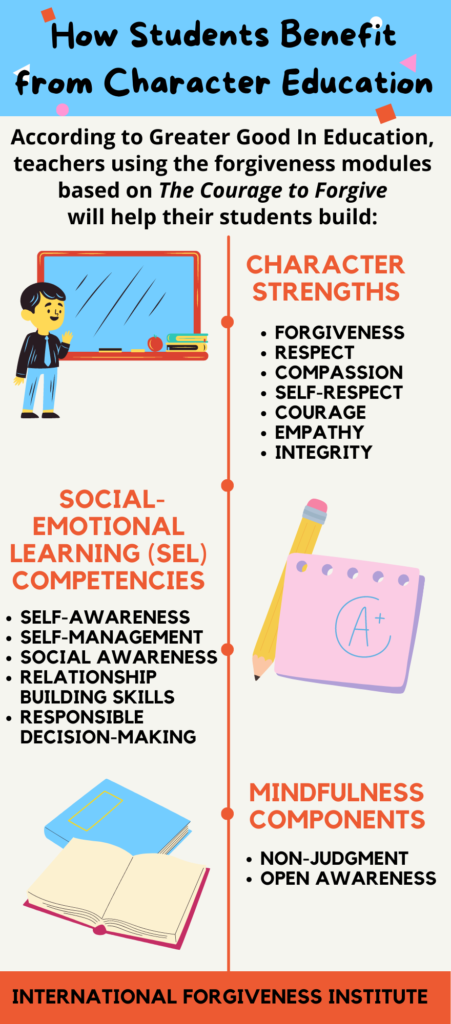Forgiveness News
Grieving Sandy Hook Mother Finds Peace in Forgiveness
The tragedy that broke the heart of a nation has led one mother from her journey of suffering for the loss of her child to what many consider unthinkable — forgiveness of the one who had taken so much from her.
Jennifer Hubbard’s 6-year-old daughter, Catherine, was one of the 20 students and 6 teachers who were shot and killed at Sandy Hook Elementary School in Newtown, Connecticut, nine years ago this month (Dec. 14, 2012). In one of the deadliest school shootings in U.S. history, the 20-year-old shooter ended his rampage by killing himself outside one of the classrooms.
The unimaginable horror of the tragedy and the raw emotion of losing her red-haired kindergartener caused virtually everything in Hubbard’s life to crumble around her.
Like parents of the other 19 students who never returned home from Sandy Hook, Hubbard found it difficult to consider recovery and healing. Still, she had to move forward to nurture Catherine’s second-grade brother, Freddy, who was also grieving, and to fulfill her pledge to make something positive out of the tragedy.
“On a purely human level, it is impossible to imagine being able to heal from the devastation of kneeling on the frozen earth beside your baby’s grave,” according to Hubbard. Relying on her Catholic faith and an outpouring of donations from supporters across the country, Hubbard slowly was able to grapple with her unthinkable pain and eventually to consider forgiveness.
“Surrendering debts takes time and does not mean forgetting,” she recently explained. “Forgetting would return us to where we started. … Forgiveness releases another from the debt you feel owed and gives your heart permission to heal rather than keep score and has more to do with us than them.”
Before Catherine died, Hubbard says, she could not understand people forgiving those who had inflicted unthinkable pain upon them. But now, by practicing forgiveness herself, she says she is able to experience peace and personal tranquility.
“Forgiveness is where we are changed, both in forgiving those who have launched assaults and in forgiving ourselves,” Hubbard writes in her recently published book Finding Sanctuary: How the Wild Work of Peace Restored the Heart of a Sandy Hook Mother. Each chapter in the book is dedicated to one step in Hubbard’s journey toward “wholeness” along with reflection questions and action steps for application in the reader’s own life.
Through her story, Hubbard shows readers how they can embrace grief and vulnerability to help heal their heart. As Fr. Peter John Cameron, O.P., writes in the book’s Forward: “Jennifer Hubbard’s achingly beautiful book takes us to the heart of horror and leads us out to an otherwise unimaginable hope.”
Catherine’s memory is kept alive in Newtown by donations from across that country that led to the creation of the Catherine Violet Hubbard Animal Sanctuary that provides learning opportunities related to all the things Catherine loved—bugs, birds, pets, farm animals and nature. Hubbard also does that through speaking, including radio interviews and appearances on national television news shows.
Forgiveness: The 2021 Holiday Miracle
With Thanksgiving now under our belt and Christmas already being unwrapped, readers of the New York Times are being encouraged to make forgiveness an ongoing part of their holiday tradition.
An article in the Nov. 24 edition features Dr. Robert Enright and explains why forgiveness could be anyone’s “2021 holiday miracle.” The article, “This Thanksgiving, Please Pass the Forgiveness,” was written by four-time New York Times bestselling author Kelly Corrigan who is also host of the popular interview series Tell Me More on PBS.
“Dr. Robert Enright, co-founder of the International Forgiveness Institute, which develops curriculums for schools, defines forgiveness as simply ‘choosing to be good to those who are not good to us,’” according to the article. “He does not recommend adjudicating the hurt. Better to skip the picking over, the enumerating, the case-making. Direct your energy to this transformative move: recognizing the inherent worth in the other.”
To support her forgiveness-for-the-holidays premise, Corrigan says “there’s research showing a link between facing our own flaws and finding our way to forgive others.”
The research she sites is a 2013 study conducted by psychology professors at Sakarya University in Sakarya, Turkey, that liberally references the work of Dr. Enright and many of his forgiveness research associates including:
- The Human Development Study Group (University of Wisconsin-Madison) formed by Dr. Enright in 1994.
- Richard Fitzgibbons, a psychiatrist who co-authored Forgiveness Therapy with Dr. Enright.
- Catherine Coyle, who with Dr. Enright focused on pregnancy and abortion.
- Joanna North, a forgiveness pioneer and philosopher who co-authored Exploring Forgiveness with Dr. Enright.
- Gayle Reed whose work with Dr. Enright focused on forgiveness with emotionally abused women.
According to Corrigan, the painful conflicts that pass between family members over a lifetime often become inflamed during the holidays—but they don’t have to. She ends her article this way:
“If you’re looking for a 2021 holiday miracle, here’s a big one: At every Thanksgiving table, there are people who have managed to look past all kinds of wrongs, people who engage in a voluntary amnesty that marries an acceptance of our own flawed ordinariness and the truth that every last one of us is more than our most unjust behaviors. At every table, people are breaking bread, raising a glass, letting go.”
With more than 5.65 million paid subscribers to its digital (online) edition, the New York Times is one of the most widely read newspapers in the world. It has been a fixture of American print news for more than 150 years and has won far more Pulitzer Prizes (130) than any other media company in U.S. history.
JOIN US! International Educational Conference on Agape Love and Forgiveness
A research project focusing on agape love and forgiveness, now underway in three culturally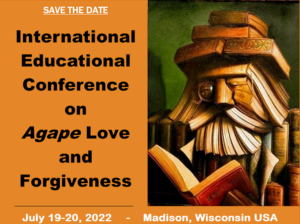 distinct areas of the world, will culminate next summer with an international educational conference to be held in Madison, Wisconsin. The conference will be hosted by the International Forgiveness Institute (IFI)—the nonprofit organization founded in Madison 27 years ago. The research is being conducted by researchers at the University of Wisconsin-Madison.
distinct areas of the world, will culminate next summer with an international educational conference to be held in Madison, Wisconsin. The conference will be hosted by the International Forgiveness Institute (IFI)—the nonprofit organization founded in Madison 27 years ago. The research is being conducted by researchers at the University of Wisconsin-Madison.
Working with elementary school children in Northern Ireland, Israel (both Arabic- and Hebrew-speaking schools), and Taiwan, the research is being funded by the John Templeton Foundation which has been supporting research on forgiveness for more than 20 years. The Foundation’s p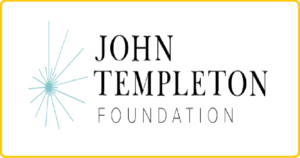 rimary goal is “to ignite a global conversation on forgiveness to help everyone experience its benefits and to increase the visibility and funding of forgiveness innovations.”
rimary goal is “to ignite a global conversation on forgiveness to help everyone experience its benefits and to increase the visibility and funding of forgiveness innovations.”
The 3-year project was developed by and is being conducted under the direction of Dr. Robert Enright, co-founder of the IFI and a professor of educational psychology at the University of Wisconsin-Madison. Its principal focus is on incorporating agape love fundamentals with Dr. Enright’s Forgiveness Curriculum materials for 5th grade students.
“Agape love is drawn from Greek tradition and is the highest expression of forgiveness toward those who caused pain,” Dr. Enright explains. “I call it the ultimate form of love—the kind of love that has never before been scientifically examined as part of forgiveness research.”
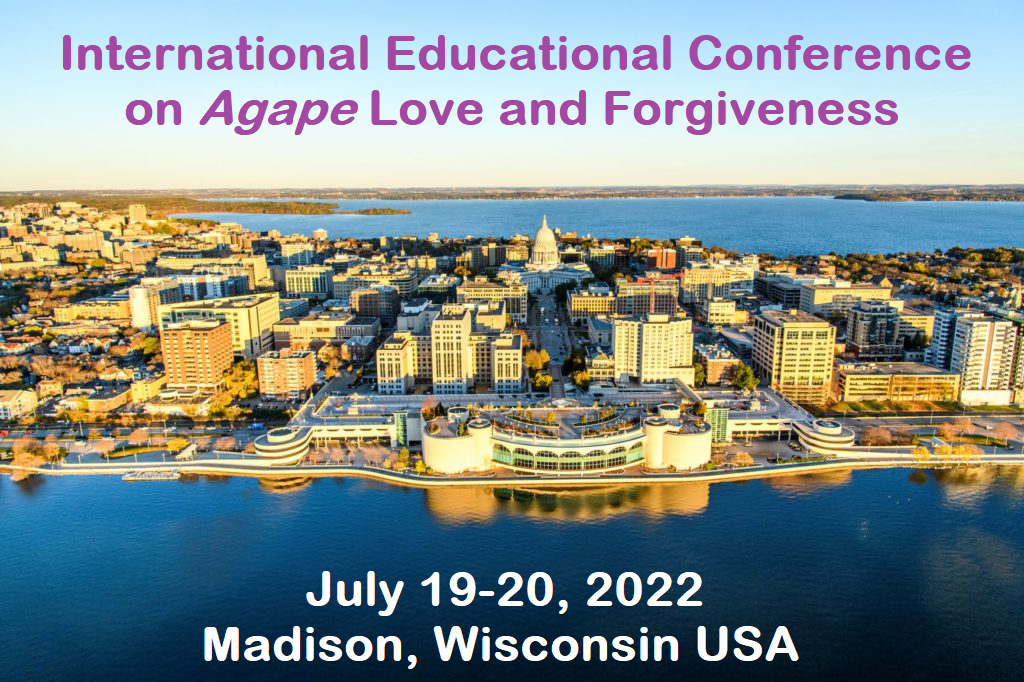 The research portion of the agape love and forgiveness education project will continue through most of this school year with 60 teachers and up to 1,200 students at the experimental sites. Some of those educators will outline their experiences and present their findings during the July 19-20, 2022 International Educational Conference on Agape Love and Forgiveness at the University of Wisconsin-Madison campus.
The research portion of the agape love and forgiveness education project will continue through most of this school year with 60 teachers and up to 1,200 students at the experimental sites. Some of those educators will outline their experiences and present their findings during the July 19-20, 2022 International Educational Conference on Agape Love and Forgiveness at the University of Wisconsin-Madison campus.
A new website that was created specifically for this Templeton Foundation project was recently launched with an abundance of information about agape love, forgiveness education, and the Conference. The website will serve as an ongoing platform where educators can access curricula and other teaching resources. It will also house all Conference presentations and education materials developed through the project. Visit the website: Agape Love and Forgiveness.
- Learn what agape love is and what makes it unique: Agape Love.
- Learn about the amazing benefits of Forgiveness Education.
Forgiveness Education in Greek Schools Now Includes How to Handle Trauma and Anger
More than 3,000 grade school students in Greece are learning how to reduce their anger, increase cooperation, gain resilience, and transform their traumas into personal character strengths through Forgiveness Education classes during this 2021-2022 school year.
“Trauma Transformation Through Forgiveness Education” is a social-emotional learning (SEL) program developed by Dr. Peli Galiti, Ph.D., M.Ed., research scholar at the University of Wisconsin – Madison. Dr. Galiti, a native of Athens, is also Director of the Greek Forgiveness Education Program (GFEP) started in 2014 by the Madison-based International Forgiveness Institute (IFI).
“This one-of-a-kind program is based on the educational research studies conducted by Dr. Robert Enright who pioneered the field of Forgiveness Education,” says Dr. Galiti. “His studies have demonstrated that Forgiveness Education classes help students reduce in anger and hostile attribution, increase in empathy, and actually result in improved grades.”
Dr. Enright is a UW-Madison educational psychology professor who co-founded the International Forgiveness Institute in 1994. He has developed comprehensive Forgiveness Education curricula for students in grades K-4 through 12th that are now being used in more than 30 countries around the world.
According to Dr. Galiti, the new program is actually a collaboration between the IFI, UW-Madison, and two Greek universities—the Aristotle University of Thessaloniki and the National and Kapodistrian University of Athens (where Dr. Galiti previously lectured). Funding is provided by the Athens-based Stavros Niarchos Foundation, one of the world’s leading private, international philanthropic organizations. The program also has the endorsement of the Greek Ministry of Education.
Dr. Galiti began implementation of the Trauma Transformation program last September by leading a series of Forgiveness Education workshops for 110 Greek teachers. Those teachers are delivering the forgiveness classes this semester at schools in four Greek cities–Athens, Larisa, Patra, and Thessaloniki.
That training focused on techniques and methods the teachers could use to help their students manage traumatic experiences and any personal or relational difficulties that might cause harm and pain. Thematic instructional units included:
- Forgiveness Education theory and principles.
- Why forgiveness is necessary and how it is applied in the school environment.
- Theories about trauma and its treatment.
- Transformation and wound healing through Forgiveness Education.
- Collaboration in the classroom and conflict resolution.
- The experience of Forgiveness Education in Greek schools: Best Practices and Case Studies.
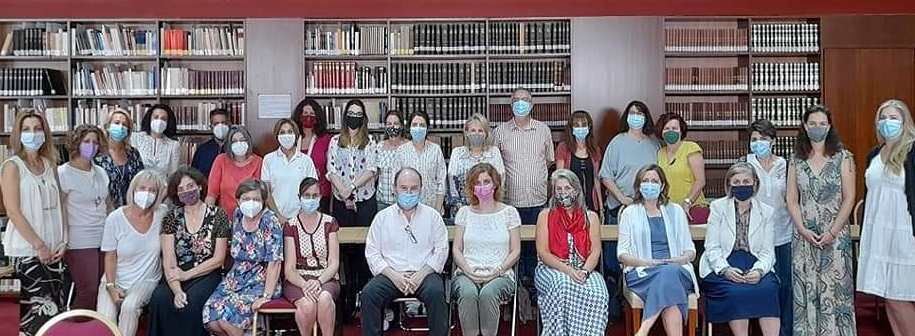
These grade school teachers in Athens were among the 110 teachers who received Forgiveness Education training conducted by Dr. Peli Galiti as part of the collaborative effort between the University of Wisconsin-Madison and the University of Thessaloniki.
The collaborative training efforts for this Forgiveness Education program have received support and major funding through the Greek Diaspora Fellowship Program that is designed to help avert Greece’s brain drain and develop long-term, mutually beneficial collaborations between universities in Greece, the United States, Canada, South Africa and Australia. The Fellowship Program is managed by the Institute of International Education in collaboration with the Fulbright Foundation in Greece, and funded by the Stavros Niarchos Foundation.
In 2017, Dr. Galiti was one of 30 Greek- and Cypriot-born scholars representing 28 prominent United States and Canadian universities who traveled to Greece to conduct academic projects with their peers at Greek universities as part of the Greek Diaspora Fellowship Program. As part of her fellowship, Dr. Galiti hosted workshops about Restorative Justice and Forgiveness Education, along with conducting research about bullying prevention and class collaboration.
- Visit the Greek Forgiveness Education Program website.
- Watch a 4 min. 12 sec. video about the Greek program: Learning to Forgive.
- Read more about Dr. Galiti’s eductional work in Greece.
- Watch a video webinar on Greek Forgiveness Education featuring presentations by Dr. Galiti and Dr. Enright.
About the Stavros Niarchos Foundation:
The Stavros Niarchos Foundation (SNF) (www.SNF.org), is one of the world’s leading private, international philanthropic organizations, making grants in the areas of arts and culture, education, health and sports, and social welfare. Since 1996, SNF has committed more than $3.3 billion through 5,100 grants to nonprofit organizations in 135 countries around the world.
The Foundation funds organizations and projects that are expected to achieve a broad, lasting and positive impact for society at large, and exhibit 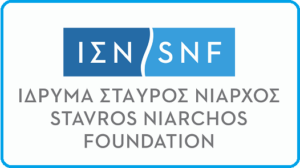 strong leadership and sound management. The Foundation also supports projects that facilitate the formation of public-private partnerships as an effective means for serving public welfare. In addition to its standard grants, the SNF has continued to respond to the urgent needs of Greek society, by providing relief against the severe effects of the socioeconomic crisis through three major grant initiatives of $378 million.
strong leadership and sound management. The Foundation also supports projects that facilitate the formation of public-private partnerships as an effective means for serving public welfare. In addition to its standard grants, the SNF has continued to respond to the urgent needs of Greek society, by providing relief against the severe effects of the socioeconomic crisis through three major grant initiatives of $378 million.
Greater Good in Education Promotes Forgiveness/Character Education
An internationally-acclaimed organization that provides research-based tools for professional educators is touting the most recent International Forgiveness Institute (IFI) curriculum guide by creating an entire “best practices” forgiveness component for educators on its website.
Forgiveness for Elementary School is a collection of four practices that provide students with tools to help them understand and begin a journey toward forgiveness. Published on the Greater Good in Education (GGIE) website, the module is dedicated to helping teachers implement learning techniques that focus on forgiveness, mindfulness, and character education.
Those techniques are presented in the new IFI Curriculum Guide The Courage to Forgive: Educating Elementary School Children About Forgiveness. The guide was written by Dr. Suzanne Freedman, forgiveness researcher and Professor of Educational Psychology at the University of Northern Iowa, and Dr. Robert Enright, IFI founder and Professor of Educational Psychology at the University of Wisconsin-Madison.
The Courage to Forgive is a social-emotional learning (SEL)/character education teaching guide that features 16 lessons, each approximately 45 minutes in length. It includes a comprehensive 15-page introduction that explains what forgiveness is (and is not) as well as why forgiveness is such a crucial subject for grade school students. The guide becomes the 15th volume in the IFI’s library of curriculum guides (for students in pre-kindergarten through high school) and the 19th educational training program offered by the IFI.
“Although the new curriculum was written specifically with 4th and 5th grade students in mind, it can be used with younger students as well as those in middle school,” according to Dr. Freedman. “We designed it so that the instructional activities can be modified as necessary for different age groups–even adults.”
The GGIE website component includes these four modules which are based on The Courage to Forgive curriculum:
1. Creating Space for Forgiveness by Letting Go of Anger
In this module, students discuss the negative consequences that anger can have, identify the benefits of letting go of anger after expressing it, and brainstorm ideas for how to cope with anger.
2. Introduction to Forgiveness
Students develop a working definition for what forgiveness is and what it is not, and consider its relationship to justice, revenge, the role of apology, and reconciliation.
3. Understanding Inherent Worth: A Path towards Forgiveness
As a class, students read the book Let’s Talk About Race by Julius Lester to begin a discussion on inherent worth, then think critically about how inherent worth and forgiveness are related. Links to a virtual reading of the book are included.
4. Learning from Courageous Forgivers
Students read The Story of Ruby Bridges by Robert Coles and reflect on the value of being a forgiving person, as exemplified by the story. Again, links to a virtual reading are provided.
“Forgiveness education focuses on recognizing and validating students’ anger, as well as teaching students to express emotions in a healthy way, understand the perspective and humanity of others, and practice empathy and compassion toward others,” Dr. Freedman added. “It is almost impossible to go through life without experiencing hurt, and knowing how to forgive gives students the opportunity to choose love and kindness over anger and hatred.”
Greater Good in Education is produced by the University of California-Berkeley’s award-winning Greater Good Science Center (GGSC). The Greater Good Education Program presents education professionals with practical, scientific insights that help them better understand the roots ![]() of kind, helpful–or “prosocial”–behavior and emotional well-being, and how they can build those skills in themselves, their colleagues, and their students.
of kind, helpful–or “prosocial”–behavior and emotional well-being, and how they can build those skills in themselves, their colleagues, and their students.
The 65-page The Courage to Forgive curriculum guide is available in downloadable electronic format on the IFI website for $30. GGIE readers are able to purchase the electronic version at a discounted price of just $15.


